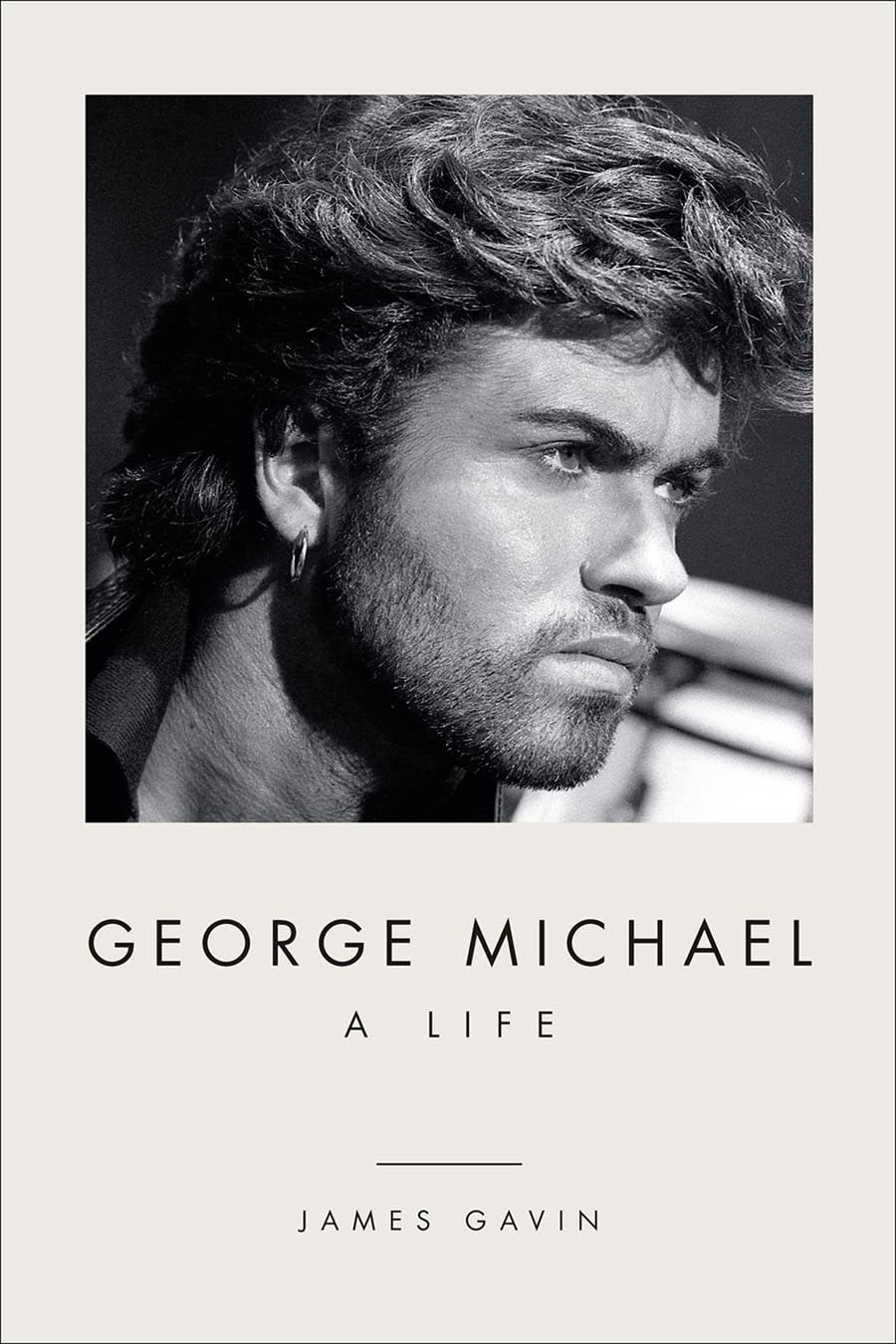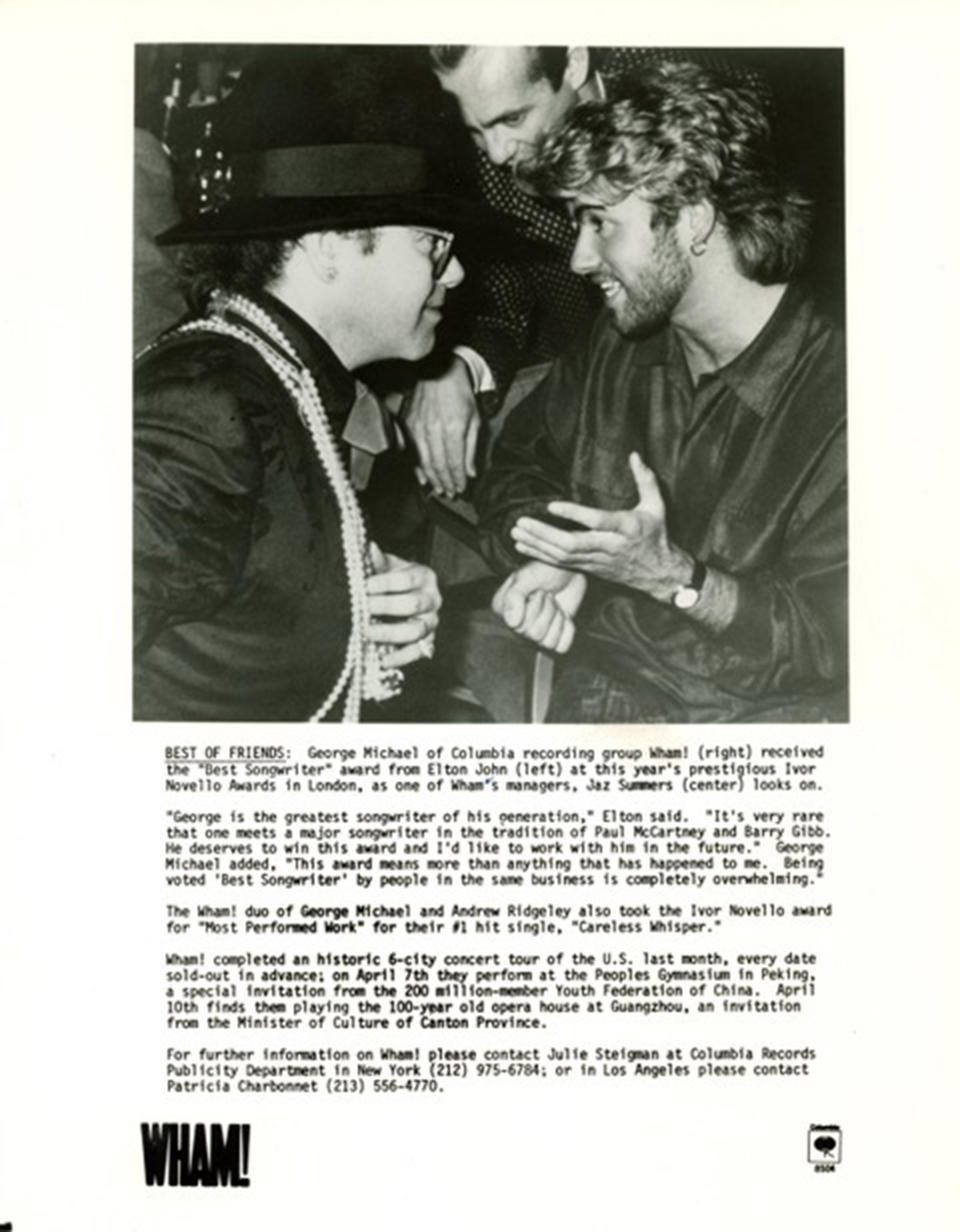George Michael’s complicated relationship with his mother explored in new biography
- Oops!Something went wrong.Please try again later.
It has been over five years since the death of George Michael shocked the world.
Michael died of natural causes related to heart disease and fatty liver when he was 53 years old on Christmas Day in 2016. The iconic singer was survived by his father and two sisters, one of whom passed exactly three years after her brother’s death in 2019. But two decades before his death, Michael experienced a series of losses which would change the course of his life from then on.
In March 1993, he lost fashion designer Anselmo Feleppa, who he was rumored to be dating, to an AIDS related illness. Four years later, Michael’s mother Lesley Angold Panayiotou died of cancer in February 1997. Both relationships were crucial for Michael, as explored in James Gavin’s biography “George Michael: A Life,” released on Tuesday, June 28 by publisher Harry N. Abrams.

The acclaimed-music biographer interviewed hundreds of Michael's friends and colleagues to create this expansive portrait of the late artist. Gavin told TODAY that Michael’s upbringing was middle class, with his father immigrating to England from Cyprus. Though he was a great success and an upwardly mobile individual, Gavin described the singer’s father, Kyriacos Panayiotou, as “intimidating and fearsome,” which affected Michael his entire childhood.
“His father had the gender views that men of his generation had and he had the homophobia that was typical of men of his era,” Gavin explained, adding that his father expressed his views in “very unfortunate ways.”
Lesley — on the other hand — was described as a “tremendously compassionate” wife and mother. However, she found her own struggles with Michael’s identity, adopting some of her husband’s views after her brother — who struggled with mental illness and was believed to be secretively gay — died by suicide when Michael was just a toddler.
“Over time, George heard stories about his uncle Colin and he came to understand that his mother’s echoes of the father’s homophobia were born out of fear that George might wind up like Uncle Colin,” Gavin said. “So he forgave her and she spent the rest of her life trying to make up for it. Never forced him, never pressured him to to be anything but what he was. She didn’t try and get the truth out of him.”

Michael’s relationship with his mother grew the strongest following the death of Feleppa, a moment that Gavin referred to as the “first major blow” to Michael. At that point in his career, Michael had not come out, leaving his alleged relationship with Feleppa unknown to his mother. However, it was after his death that Michael penned a letter for his parents in which he came out. (It wasn't until 1998 that Michael came out publicly during an interview with CNN.)
“From that point on, their relationship was solid because she loved him all the more so,” Gavin said of Michael and his mother. “It was poignant to learn that she would come to George’s home, wherever he was at the moment, she would come there and do housekeeping, laundry, cleaning the house, anything she could do to show George that he was cared for and loved and accepted.”

The “Faith” singer was said to have a “rare mother-son relationship.” Gavin described his mother as a woman who wanted nothing from her son, except for him to be happy.
“If you're living a highly protective life in hiding, scrutinized mercilessly by the people around you. If you have savage reporters who are doing their best to dig up dirt on you. If you fail, a lot of the people in your life are on the payroll. If you have very few people in life who are brave enough to tell you the truth if you don’t really want to hear the truth, then the existence of one person — even just one person — who loves you no matter what is crucial to your happiness. That’s what Lesley was to George,” Gavin said.
For a short period of Michael’s life between the death of Feleppa and his mother, Gavin said he “had a kind of stability that he had never had before.” But in 1997 when his mother died of cancer, that was when his world began to unravel. Michael perceived Feleppa and his mother as angels, so when they died, Gavin said that the musician “felt as though the universe was out to do him in.”
“From that point on, he could not easily face reality cold any more, it was too painful for him. He had to buffer himself from all of the pain around him,” Gavin said.
Michael thus experienced a whirlwind of self-destruction after his mother’s death, including a decrease in his productivity when it came to making music. He released only two studio albums before his own death in 2016 — "Songs from the Last Century" in 1999 and "Patience" in 2004. He also leaned heavily into smoking cigarettes as well as recreational drug use, including marijuana, GHB and later crack cocaine.

Yet, even through his struggles and periods of grief for the loss of two of the most important people in his life, Michael was still able to find happiness in life. Gavin described him as a man with a “great sense of humor” who also took “enormous joy in giving to people.”
“One of the loveliest aspects of George is his tremendous philanthropy, which was somewhat known during his lifetime,” Gavin said. “He did a lot of it in secret. He helped friends of his who were in trouble, he helped absolute strangers, he helped organizations like Project Angel Food in Los Angeles. There were all these humane causes that attracted him. George felt that as a person of tremendous privilege that it made him feel better to be helping people who didn’t have it.”
According to Gavin, Michael's philanthropy helped fill the void in his life after his productivity slowed down, explaining, "This was a way for George to give more meaning to his own life."
Gavin added, "It was a cause that almost justified his existence at a time when making music had become too painful for him."
To celebrate LGBTQ pride, TODAY is sharing this community’s history, pain, joy and what’s next for the movement. We will be publishing personal essays, stories, videos and special features throughout the entire month of June.

